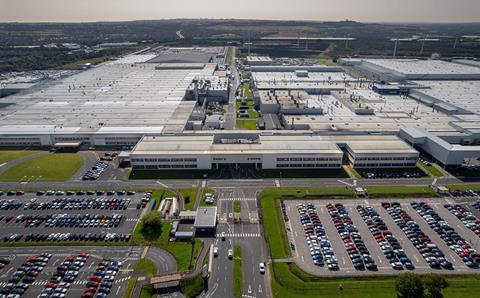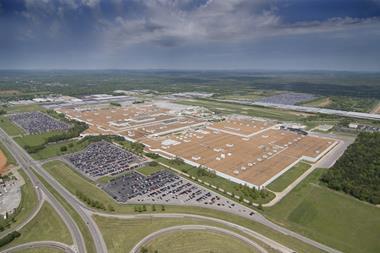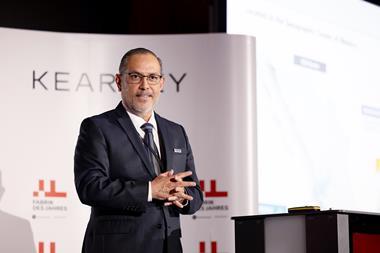Nissan is investing £3 billion ($3.8 bn) in its EV36Zero hub, its flagship EV hub centred around its plant in Sunderland, UK, to build three new gigafactories in total for its three EV models.
The carmaker said it would be investing in its “blueprint for future manufacturing” by building a third gigafactory following the announcement that the UK government will be injecting £2bn into the automotive industry to drive sustainable growth.

The three EV models set to be made at the Sunderland plant include its Qashqai and JUKE crossovers, as well as its next-generation LEAF. The OEM said that both vehicle and battery manufacturing will be powered by the EV36Zero Microgrid, which will incorporate the wind and solar farms at Nissan and will have the capacity to deliver 100% renewable electricity to the carmaker and its neighbouring suppliers.
“With electric versions of our core European models on the way, we are accelerating towards a new era for Nissan, for industry and for our customers,” said Makoto Uchida, CEO and president, Nissan. “The EV36Zero project puts our Sunderland plant, Britain’s biggest ever car factory, at the heart of our future vision. It means our UK team will be designing, engineering and manufacturing the vehicles of the future, driving us towards an all-electric future for Nissan in Europe.”
All new Nissan cars in the continent will be fully electric, with all passenger cars in Europe to be 100% electric by 2030. In addition, the UK Government has awarded £15m of funding for a £30m collaborative project led by Nissan. It will strengthen the technical expertise and R&D zero emission vehicle capability of the Nissan Technical Centre (NTCE) in Cranfield, Bedfordshire, increasing opportunities for securing additional UK R&D investment in future vehicle models.
Rishi Sunak, UK Prime Minister said: “Nissan’s investment is a massive vote of confidence in the UK’s automotive industry, which already contributes a massive £71 billion a year to our economy. This venture will no doubt secure Sunderland’s future as the UK’s Silicon Valley for electric vehicle innovation and manufacturing.
“Making the UK the best place to do business is at the heart of our economic plan. We will continue to back businesses like Nissan to expand and grow their roots in the UK every step of the way as we make the right long-term decisions for a brighter future.”
Mike Hawes, chief executive, Society of Motor Manufacturers & Traders (SMMT) said the announcement highlights the UK’s “investment attractiveness”. He added: “This new announcement from Nissan, coming on the back of billions recently committed by other manufacturers and supported by the UK government, underlines Britain’s position as an increasingly competitive location for electric vehicle production.”
However, there is still significant investment needed in battery manufacturing in the UK to meet domestic demand for EVs, according to consultancy Vendigital. Sheena Patel, the firm’s automotive sector specialist said: “The Faraday Institute has estimated that the UK will require 100GWh of battery manufacturing capacity by 2030 to meet the demands of the automotive industry along with other sectors, and Nissan’s latest announcement demonstrates that the pressure is on to increase capacity. The UK has work to do to retain its competitive footing on the global stage, but this announcement will help to reinvigorate manufacturing capabilities and grab opportunities for job creation.”
This year, the UK EV industry received a boost when Tata Group announced plans to build a £4bn gigafactory in Somerset through its new subsidiary known as Agratas, with plans to ramp up production to serve JLR as its anchor client. It’s the most significant battery cell investment in the UK to date.






































No comments yet